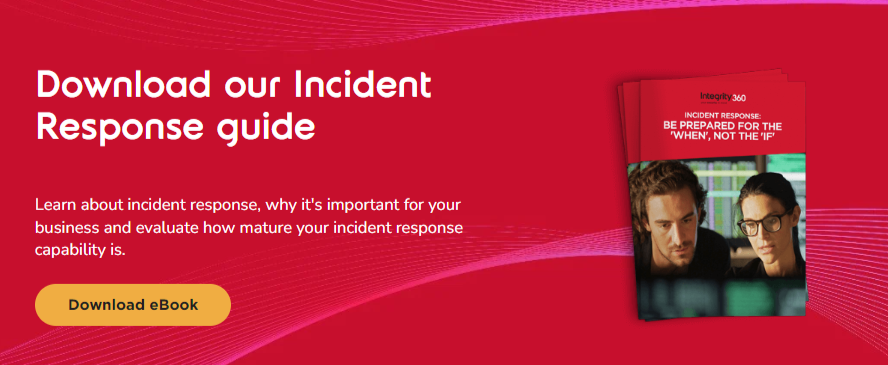In the spirit of Cyber Security Awareness Month, Integrity360 is calling for businesses to look beyond basic cyber security measures. As cyber threats evolve, traditional techniques like strong passwords and periodic software updates leave organisations vulnerable to more sophisticated attacks.
While these fundamentals are critical, they are no longer sufficient on their own. Businesses must go beyond the basics to ensure robust protection. The growing complexity of cyber threats means that organisations need more advanced strategies to safeguard their systems, data, and networks effectively.
Moving towards continuous monitoring and rapid response
There needs to be a shift from periodic security checks to continuous monitoring. By doing so, organisations can stay ahead of cyber risks with resilience and rapid response and recovery capabilities. To stay ahead of cyber risks, organisations need several things; Continuous monitoring, resilience, and rapid response and recovery capabilities. This approach ensures that businesses can detect, control, and recover from threats in real-time.
Understanding which systems and data are most critical—and where vulnerabilities lie—is essential. We advise organisations to identify key assets that may be susceptible to cyber threats and to consider the potential financial and reputational impacts of a security breach.

Building a strong incident response plan
A well-defined incident response plan is essential for any business aiming to bolster its cyber security. The importance of having clear procedures for detecting, controlling, and remediating cyber threats cannot be underestimated. Training employees to respond efficiently to incidents is crucial, as their actions can significantly affect the outcome of a cyberattack.
In addition to having an incident response plan, it's recommended to leverage advanced threat detection tools like Security Information and Event Management (SIEM) systems and Managed Detection and Response (MDR) systems. These tools enable organisations to detect threats early and take prompt action, reducing the likelihood of significant damage.
Outsourcing to a managed incident response provider
For many businesses, outsourcing to a managed incident response provider can be a game-changer. This move gives businesses immediate access to expertise, emergency support during cyberattacks, and proactive advice on building an internal incident response framework. With a trusted partner on board, organisations can enhance their resilience and have peace of mind knowing they have expert assistance at their disposal.
Going beyond with CTEM and cross-functional collaboration
To further fortify cyber security efforts, Ford suggests adopting Continuous Threat Exposure Management (CTEM). CTEM provides prioritised insights into exposures, helping organisations address vulnerabilities strategically. Additionally, fostering collaboration between security and IT teams is crucial to ensure that cyber security measures are effectively integrated across the organisation.
By focusing on these advanced measures, businesses can develop a comprehensive cyber security strategy that goes beyond the basics. In doing so, they can better protect their systems and data, minimise the risk of breaches, and safeguard their reputation. Cyber Security Awareness Month serves as a timely reminder that cyber security is an ongoing effort, requiring constant vigilance and a willingness to adapt to new threats.








